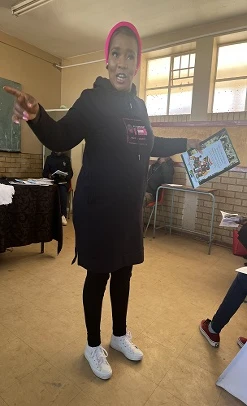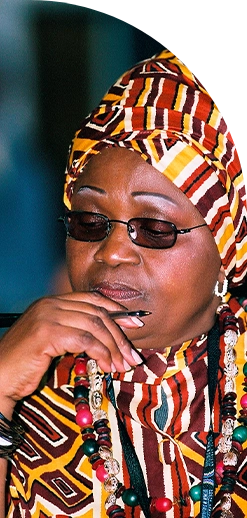


ADVOCACY TO ACTION
In the past two decades SAWID has put the needs of women, their voices and their aspirations at the heart of its work. Following its conceptualisation and establishment, it aimed to infuse international best practice into its programmes of action. It therefore conducted a study tour to Chile and Tunisia in 2006, the only two countries worldwide that had managed to halve poverty.
Based on this experience and learnings, SAWID, upon their return to the country successfully advocated for a Women’s Ministry and a Planning Structure.
It further used the successful Chilean model to recruit and train 81 young men and women in 3 municipalities over two years as Social Auxiliary workers and employed each of them for a further 5 years to enter identified indigent families with a basket of services, sharing the model with WDB Trust to continue as their Zenzele model.
SAWID has identified the following pillars that best illustrate the work that it does:
PillarONE
BUILDING SAWID’S INSTITUTIONAL CAPACITY
SAWID increased its capacity from 2 part-time staff members to 8 staff members between 2020 and 2023, and from 4 trustees to 9. Core funding was obtained for operations and the smooth running of the secretariat.
PillarTWO
INCLUSIVE DIALOGUES WITH HEALING AND TRAINING
More than 20 000 women have attended SAWID dialogues, workshops, study tours, webinars, and roundtables during the past 20 years. Each Dialogue has both a healing and a training component.
PillarTHREE
AGENCY, ADVOCACY AND PARTNERSHIPS
By partnering with local and global change-makers, such as WDB Trust, UN Women, and UNISA, our dialogue, relief, and empowerment initiatives are backed by leaders in strategic planning and execution.
PillarFOUR
RESEARCH AND KNOWLEDGE MANAGEMENT
Our intensive and ongoing research works to uncover the intricacies of vulnerable and indigent communities, so as to design and execute powerful, tailored strategies based on real evidence.
Addressed systemic issues for poverty eradication
Development Caravan model of poverty eradication
Managing Dialogue Platform
More than 20 000 women have participated and been empowered by the Dialogue platform and accessed training, and information to establish organizations and to build supportive networks.

